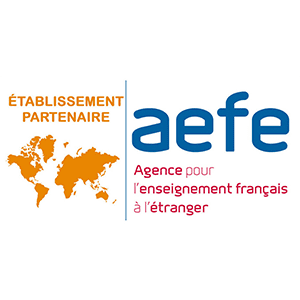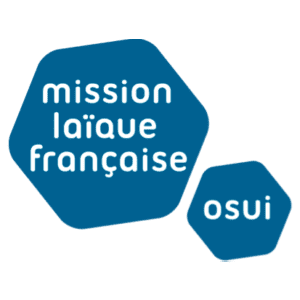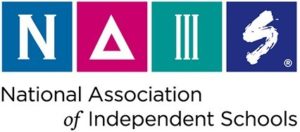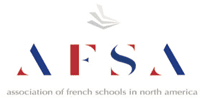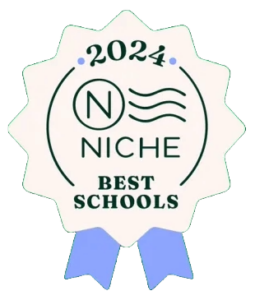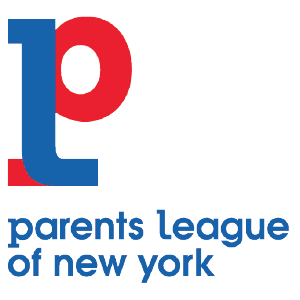More and more evidence has come to light in recent years in support of adding a second (or third) language to your child’s curriculum. While many parents may be apprehensive about introducing additional language learning to their child at a young age, research has shown early education is a fantastic time to begin bilingual teaching.
According to the U.S. National Library of Medicine, studies have shown that the most important learning process of early education involves language and literacy development. These two skills, which are intertwined, form the basic foundation for all other learning processes your child will encounter the rest of their lives.
“The primary goal of early schooling is to establish the foundational skills upon which children will build their educational futures. The most important of these abilities are the language and literacy competence.” – The U.S. National Library of Medicine.
It goes without saying then, that a focus on language learning is the key to the best academic potential for children. In fact, adding dual language learning to their academia during early education years, serves to boost their comprehension skills even further, according to recent research by the National Institute of Health (NIH).
As the NIH reports, the Lindholm-Leary study, conducted in 2014, showed “…children in the bilingual program outperform(ed) the English-only instruction group in both English and Spanish test scores by the end of second grade.”
The research results leave us with compelling evidence in support of introducing bilingual learning at a young age. Which in turn, begs the question, “how do we choose which language is best?” Our Language Spotlight Series is going to take a look at two of the top ranked languages chosen for children around the world: Spanish and French. This month we will be focusing our articles on discovering the benefits of each language option, beginning with Spanish.
Spotlight on Spanish
According to international census results, conducted by Swedish educational group, Nationalencyklopedin.com, in 2010 there were 405 million Spanish speakers throughout the world. These census results showed there are nearly 50 million more people globally who speak Spanish than there are who speak English – and that was 9 years ago. The numbers are only increasing with each year.
What does this mean? Well, to put it simply, there are more opportunities for your child if they speak Spanish than there are if they speak English. Imagine the possibilities if they were bilingual and able to speak both.
“In the United States alone there are over 50 million people who speak Spanish as their native or second language. So even if you don’t fancy yourself a globetrotter, Spanish is probably the most useful language to learn…” – Babbel.com.
If you base your decision on numbers, Spanish is a likely front-runner for bilingual education options for your child, but it’s so much more than just a popular choice. Here are five of the top benefits to consider when choosing Spanish as a second language for your child’s early educational curriculum:
1 – Opportunities
When you choose a language that is the second most spoken language across the globe, you’re choosing so much more than just a language voted most likely to succeed or most popular in the annual polls. You’re choosing opportunities for your child.
With so many people speaking Spanish – both in the United States and around the world – learning the more common language seems a no-brainer. By learning to communicate with a larger base of the global population, you will be giving your child the tools to close gaps between cultures and open up lines of communication with endless individuals and multi-lingual opportunities.
“Spanish is the second most-spoken language in the world. The opportunities for Spanish speakers across the globe are endless!” – Leapfrog.com.
2 – Stronger Linguistic Core
Perhaps one of the greatest advantages to consider when signing your child up for Spanish language instruction, lies in the foundational work. While you may be afraid your child will be confused by using multiple languages in the early years, the contrary is actually true – particularly when learning Spanish.
English and Spanish share many commonalities in their core linguistics. In fact, both have strong Latin roots and have multiple words that are so similar they are basically the same (or literally, are the same) – and easily understood.
“Studying Spanish increases children’s understanding of the English language and how different languages evolve, which can also help with learning English vocabulary.” – Leapfrog.com.
Going back to the study findings listed above from the U.S. National Library of Medicine, language and linguistic learning is the most critical piece of your child’s early education. By extension then, choosing a course of study that helps boost your child’s ability to understand and develop these foundational linguistic skills makes perfect sense.
3 – Ease of Understanding
In a related benefit, since Spanish and English share so many commonalities, it also makes it a fairly simple language for young minds to pick up. There are literally thousands of words in the Spanish language that share a base with English words. Actually, there are several thousand that share an exact same spelling and meaning in both languages.
Words like capital, editorial, federal, hospital, manual, normal, and thousands more share the same meaning and spelling, just to give an example. English and Spanish are highly relatable and easily understood, so it goes without saying that the earlier you begin bilingual studies, the easier it is to pick up. With so many similarities, children will be able to pick up Spanish as a second language in no time.
4 – Breaking Barriers
Because learning a second language is more than just opening opportunities, it’s important to consider the bilateral advantages. While your child will certainly be picking up fantastic core linguistic lessons and opening doors to communicating with a larger portion of the global population, there is more to the picture.
According to Babbel Magazine, there are actually more Spanish speaking individuals in the United States than there are in Spain. The Spanish-speaking population in the United States is second in size only to that of Mexico – giving an even greater opportunity for immersion learning.
With a language as vastly used as Spanish, becoming fluent does more than just open communication lines – it breaks down communication barriers. When the language barriers are taken down, cultural learning and enrichment are open and available for even greater impacts on our children.
“Dual language programs show students a broader world-view, whatever the native language of the student, and lead to greater opportunities for collaborative learning.” – Huffington Post.
5 – Increased Fluency
When you consider all of the factors above, it makes sense to deduce that Spanish as a second language comes with an increased chance for fluency later in life when introduced at an early age. Combining the fact that the two languages share so many similarities, with the fact that they increase linguistic foundations overall, it’s easy to understand how your child will be building a strong potential for continuing their learning later in life.
“It generally takes five to seven years to be proficient in a second language… In other words, U.S. students should be introduced to a second language at a young age in order to be fluent by adulthood.” – Huffington Post.
Overall, when choosing a second language for early childhood education, a vast majority of parents have chosen Spanish for a multitude of reasons. With the increasing Spanish-speaking population and wide-spread use of Spanish across the globe, it’s certainly the most popular choice. It also shares a root in Latin-based linguistics, giving it so many similarities to English and making it an easy-learn for young minds.
Whatever your reason, introducing Spanish to early education students has unparalleled benefits across the board. Speak with bilingual educational professionals near you to learn even more advantages to Spanish instruction!










